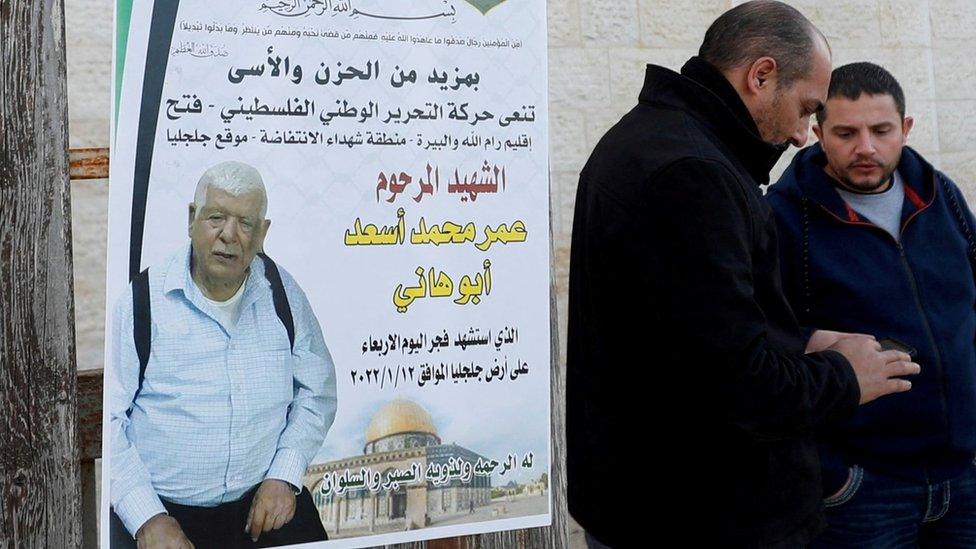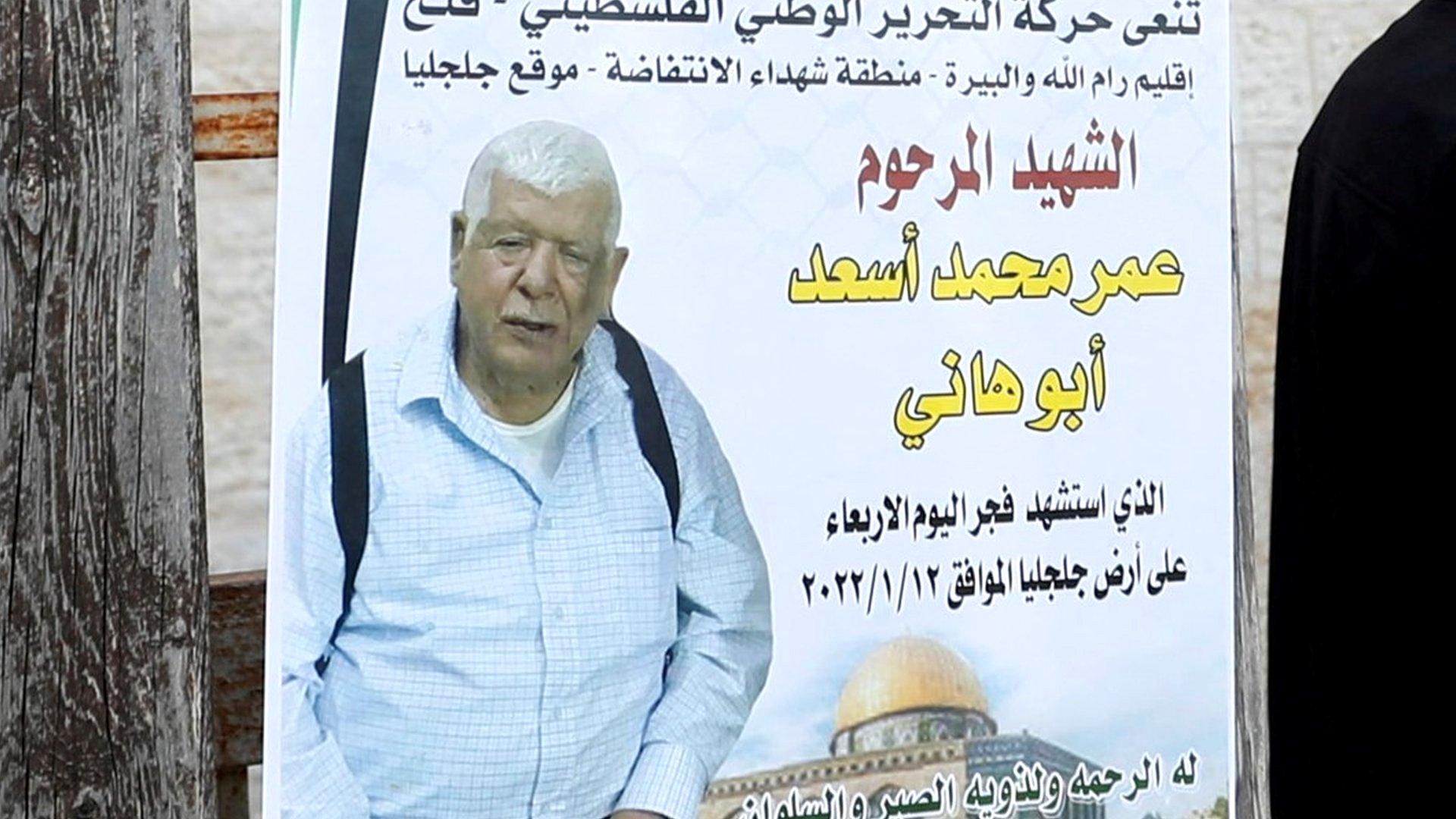Israeli troops will not face criminal charges over Palestinian-American's death
- Published

Omar Asad - pictured in this poster - had been driving to his home in Jiljilya when he was stopped at a temporary checkpoint
Israel's military has said no criminal charges will be filed against soldiers who gagged and bound an elderly Palestinian-American man who then died of heart failure.
Omar Asad, 80, was detained at a temporary checkpoint in the occupied West Bank overnight in January 2022.
The soldiers left him unresponsive on the ground of a construction site and said they assumed he had fallen asleep.
Palestinian leaders say this case shows the near impunity of Israeli soldiers.
They have called for those involved to be prosecuted in an international court.
Mr Asad had been out drinking coffee and playing cards before driving to his home in the village of Jiljilya, near Ramallah, his family said, when his car was stopped at a temporary checkpoint in the early hours of the morning.
Israeli soldiers are said to have been in the area "to thwart terrorist activity and locate illegal weapons".
The Israel Defense Forces (IDF) said in a statement that Mr Asad "loudly and persistently" resisted attempts to lead him away from his car.
It added that he was briefly gagged with a strip of cloth and his hands were tied with a cable tie "due to the concern that Asad's behaviour would lead to the soldiers being exposed and in view of his aggressive resistance".
He was taken to a nearby building where three other Palestinians were later detained too.
"The soldiers believed Asad was under the influence of alcohol or drugs and assumed he fell asleep on the ground, where he was laid," the IDF statement said.
Before the Israeli soldiers left the area, they found Mr Asad lying face upwards and unresponsive but "did not identify any indications that Asad was in distress", according to the IDF. "Therefore, they assumed he was asleep, did not attempt to wake him up, and left the location."
His body was later found there.
Palestinian doctors said Mr Asad, who had previously undergone heart surgery, suffered sudden cardiac arrest caused by the stress of physical violence. A post-mortem exam found abrasions on his wrists and bleeding on the insides of his eyelids.
After an initial investigation, the IDF dismissed two officers and reprimanded a battalion commander over the death, saying it resulted from "a moral failure and poor decision-making".
But now the Military Advocate General has said there will be no criminal prosecution because a military medic found it impossible to determine that Mr Asad's death was caused specifically by the soldiers' conduct, and that the soldiers could not have been aware of his medical condition. They will face further disciplinary and command measures.
"The IDF laments Assad's death and works to prevent the recurrence of such incidents," the Military Advocate General said.
At the time of Mr Asad's death, the US said it was "deeply concerned" and expected "a thorough criminal investigation and full accountability". Mr Asad had spent years living in the US and his children and grandchildren continue to live there.
Mr Asad had been waiting for years for Israel to reinstate his Palestinian ID card so that he could travel to the US to visit his relatives and then return home to the West Bank.
The Palestinian foreign ministry condemned the Israeli military prosecutor's decision to close the case, describing what happened to Mr Asad as a crime and calling on the US to investigate.
In a statement, the ministry said there was "an official Israeli policy", which was meant "to give the impression that there are Israeli investigations into the ongoing crimes committed by the occupation army" and "to mislead countries, the international community, and global public opinion".
A report by the Israeli rights group Yesh Din, based on military data from 2017 to 2021, found that Israeli forces were prosecuted for less than 1% of the hundreds of complaints filed against them on alleged offences against Palestinians.
In the rare cases where soldiers were convicted of harming Palestinians, military courts handed down "extremely lenient sentences", according to the report.
"All of this speaks to a reluctance on the part of the military law enforcement system to take appropriate action concerning crimes committed by soldiers against Palestinians," it said.
- Published1 February 2022

- Published12 January 2022
